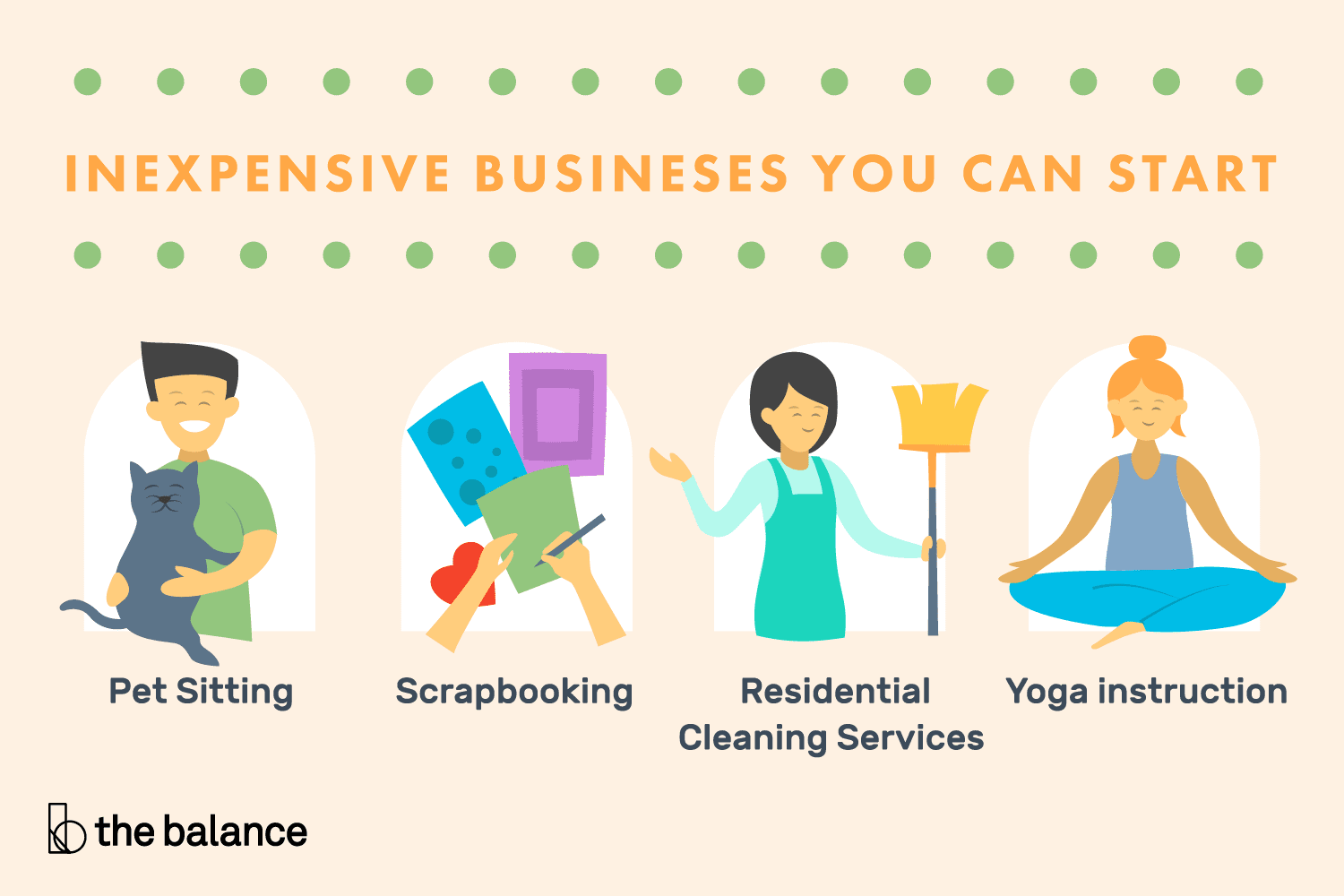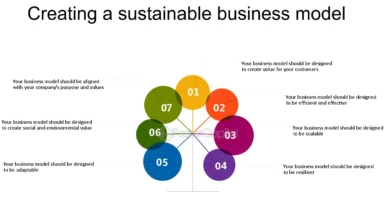Starting your own business is a dream for many people. However, the misconception that launching a business requires a massive financial investment often holds aspiring entrepreneurs back. The good news is that plenty of affordable options exist for those with limited resources. If you’re looking for a cheap Business, this article will guide you through some of the most accessible and cost-effective business ideas, along with tips to keep your startup costs low.
Why Start a Cheap Business?
Starting a cheap business has several advantages beyond just saving money. Here’s why many entrepreneurs choose this path:
- Lower Risk: Investing less capital means less risk if the business doesn’t succeed as planned.
- Flexibility: Many low-cost businesses can be run from home or online, offering flexibility in work hours and location.
- Scalability: Affordable business models often allow you to start small and scale as your revenue grows.
- Learning Opportunity: Starting a cheap business enables you to gain valuable entrepreneurial experience without making a significant financial commitment.
Whether you’re looking for a side hustle or aiming to transition into full-time self-employment, choosing a cheap business to start can pave the way for your entrepreneurial journey.
Key Factors to Consider When Choosing a Cheap Business to Start
Before diving into specific ideas, it’s important to consider a few factors that can influence your business success:
1. Skills and Interests
Choose a business that aligns with your skills and passions. This will not only increase your chances of success but also make your work more enjoyable.
2. Target Market
Research your audience. Who are your potential customers? Understanding their needs and preferences can help you tailor your business to meet demand.
3. Startup Costs
Make a list of necessary expenses, such as equipment, software, or raw materials. Opt for ideas with minimal initial investment.
4. Scalability
Look for business ideas that can grow with time. Even if you start small, your business should have room for expansion.
Now that we’ve covered the basics, let’s explore some excellent options for a cheap business to start.
1. Freelance Services
Freelancing is one of the easiest and cheapest businesses to start because all you need is a skill and an internet connection. Examples of freelancing services include:
- Writing and editing
- Graphic design
- Web development
- Social media management
- Virtual assistance
Why It’s Affordable:
You can work from home and use free or low-cost tools to get started. Websites like Upwork, Fiverr, and Freelancer make it easy to find clients.
Startup Costs:
- Laptop or computer: $0–$500 (if you already have one, this cost is negligible)
- Software: Free options like Canva (for design) and Google Docs (for writing)
- Marketing: Start with free social media platforms
2. Dropshipping
Dropshipping is a popular e-commerce business model that allows you to sell products without holding inventory. You simply set up an online store, and when a customer places an order, the supplier ships the product directly to the buyer.
Why It’s Affordable:
You don’t need to buy products upfront or rent storage space. All you need is a website and a supplier.
Startup Costs:
- E-commerce platform subscription: $29/month (Shopify) or cheaper alternatives like WooCommerce
- Domain name: $10–$15 annually
- Marketing: Free social media marketing or paid ads (optional)
3. Blogging or Affiliate Marketing
Blogging is a cheap business to start if you enjoy writing and sharing your expertise on a specific topic. Over time, you can monetize your blog through affiliate marketing, sponsored posts, or ad revenue.
Why It’s Affordable:
The main expense is hosting your website, and content creation can be done for free.
Startup Costs:
- Web hosting: $3–$10/month (providers like Bluehost or SiteGround)
- Domain name: $10–$15 annually
- Content creation: Free if you write your own articles
4. Online Courses or Coaching
If you’re an expert in a particular field, consider creating online courses or offering coaching services. This is an excellent business idea for people with teaching, technical, or personal development skills.
Why It’s Affordable:
You can use free or low-cost platforms to create and distribute your courses, such as Udemy, Teachable, or Zoom for live coaching.
Startup Costs:
- Course platform subscription: $0–$29/month (some platforms charge a percentage of your earnings instead)
- Marketing: Social media and email newsletters (minimal cost)
5. Handmade Products or Crafts
If you’re a creative person, selling handmade items such as jewelry, candles, or artwork can be a fun and profitable business. Platforms like Etsy make it easy to reach a global audience.
Why It’s Affordable:
You can start by making products at home using minimal supplies.
Startup Costs:
- Raw materials: $50–$200 (depends on the product)
- Selling platform fees: Small percentage of sales (Etsy or eBay)
- Marketing: Free social media promotion
6. Cleaning Services
Starting a cleaning business requires little more than basic cleaning supplies and a willingness to work hard. You can offer services for homes, offices, or specialized cleaning tasks like carpet cleaning.
Why It’s Affordable:
The supplies are inexpensive, and you can work locally to avoid travel costs.
Startup Costs:
- Cleaning supplies: $50–$100
- Transportation: Your existing vehicle (if applicable)
- Marketing: Free word-of-mouth promotion or inexpensive flyers
7. Pet Services
If you love animals, starting a pet-sitting, dog-walking, or grooming business can be both enjoyable and profitable. With the increasing number of pet owners, demand for these services is high.
Why It’s Affordable:
Pet services require minimal equipment, and you can start by serving friends and neighbors.
Startup Costs:
- Basic supplies: $20–$50
- Marketing: Free through community boards or social media
8. Event Planning
If you’re organized and enjoy planning, event planning can be a lucrative business. Start small by organizing birthday parties, weddings, or corporate events.
Why It’s Affordable:
You don’t need an office, and you can work with vendors who cover costs upfront.
Startup Costs:
- Business cards and flyers: $20–$50
- Website (optional): $5–$10/month for hosting
Tips for Starting a Cheap Business Successfully
Here are some tips to maximize your chances of success with a low-cost business:
- Leverage Free Tools: Use free or freemium software for accounting, marketing, and communication (e.g., Canva, Google Workspace, or HubSpot CRM).
- Start Small: Focus on a narrow niche or audience initially to reduce complexity and cost.
- Learn Digital Marketing: Master social media, SEO, and email marketing to promote your business for free or at minimal expense.
- Bootstrap: Reinvest your earnings back into your business to grow without taking on debt.
- Network: Connect with other entrepreneurs or join local groups to gain insights and find collaboration opportunities.
Conclusion
Starting a business doesn’t have to break the bank. By choosing a cheap business to start, you can achieve your entrepreneurial goals while minimizing financial risk. Whether it’s freelancing, dropshipping, or selling handmade crafts, there are countless opportunities to turn your skills and passions into a profitable venture.
Remember, the key to success is not just choosing a low-cost business but also dedicating time, effort, and creativity to growing it. With the right mindset and strategy, you can build a thriving business on a shoestring budget. So, what are you waiting for? Start your journey today!




